QuestionQUESTION: I just got two 3 month old baby rats, and i think one (Zander) might be sick. He makes weird sounds, sounds like guinea pig noises. I told my mother about it and she said hes just curious, but the other rat i had before was alittle older than them and he didnt make these sounds, I do use kiln dried pine bedding but i was thinking about switching them to another bedding. about 8 minutes later i went back upstairs and he wasnt making them anymore. His brother (Blase) makes these sounds once in awhile but rarely(keep in mind i just got them yesterday 9/6/). Please please help me i really wanna know if its normal or not so i can help him, I really dont wanna lose him ecspecially since his brother follows him everywhere and Blase would be very depressed if he left.
Thanks
ANSWER: He needs off of the pain immediately. This is dangerous to use, regardless if it is klin dried or not, it doesnt remove phenol oils which can cause irritation to the lungs and trigger mycoplasmosis.
Use yesterdays news instead. If you cant find that, aspen bedding is second on the list and last but not least, carefresh, although it can be a bit dusty and not my first choice, its better than using pine. If you cant get to the store, remove the pine anyhow and tear up some paper towels for now or even newspaper.
Both pine and cedar are no good for rats as well as the corn cob bedding, which when wet for too long can grow a nasty mold that is bad for the rats lungs too.
The rats should not make those noises at all and if they dont stop once the pine is removed (give them a week or so) or if they start sneezing, have alot of porphyrin discharge from their eyes (if your not sure what that is, read on my website MY RATS EYES AND NOSE ARE BLEEDING!" and if they stop eating and becoming weak and tired, they need seen by a good vet right away. DO NOT return them to the pet store. THey never give them proper care even if they say they will. THey never see a vet, they stay in the back room and the employees give them medicine and if they dont respond to treatment they tell you to pick another one out and say yours died, and they toss it in the feeder bin for snake food instead. True stories, very sad but people need to know the truth about what goes on behind the doors of some pet stores.
Are these your first rats? My rats are pushing 4 months old, they sure are a handful.
Check out my site on how to construct a nice safe and sturdy plan pen wall out of cardboard so you can set up a play area for you and the two babies to sit in and let them wander around, exploring the toys you have down for them etc..... read GETTING STARTED for all the ideas. Also check out WATCH MY BOYS GROW to see my little boys.
Here is the main page. Check out the link on MYCOPLASMOSIS too, so you know what to look for should they start sneezing etc....
http://www.freewebs.com/crittercity/
Also, if you need names of vets just to have in case you need one in the future, please let me know your location. A regular vet normally doesnt see rats and only special vets like exotic vets or vets that have a special interest in exotics are the ones that see them, and they are not easy to find.
Hope this helps! Let me know after you go over my critter city site. Thanks for writing!
---------- FOLLOW-UP ----------
QUESTION: Thanks. Well Zander did stop making those noises but i didnt take him off the pine, my other rat was on that for a almost two years and he acted like any other rat, but now my new ones just act like little babies. No these are not my first rats, their my 4th ones, my 2nd one just died last week. Also i looked on the other websites before coming to you, and it said its ok for them to be on kiln dried pine, so i'm very confused now.
Thanks again
Answer
Chances are the sites you read this on were not written by rat experts, but by pet owners that use klin dried pine and want to insist that by heating it, it will make a difference.
Truth is, the heat does nothing to drive off the toxins. Heat treated shavings continue to cause a rise in liver enzymes in rats and mice and contribute to liver disease.
As for the fact your rat was fine on pine....many people that have used pine in the past and they said their rat seemed fine dont really understand the impact that pine can have on the rat. If it doesnt effect the respiratory tract, it does cause liver enzymes to rise. Rats with elevated liver enzymes usually do not show signs of illness right away and unless they receive a necropsy after death, they will not be able to identify enlarged liver, liver dysfunction or altered immune system, the rat owner will continue to think all was well. The rat that was kept on pine, what did he pass away from and at what age, if you dont mind my asking?
Also, rats kept on pine are more likely to die under anesthesia due to liver dysfunction. Often this too can go without linking the use of pine and simply believed that the rat just could not handle anesthesia. The main reason rats cannot handle it is when the liver cannot properly filter it out and if its not functioning right, it wont filter the toxins properly and can cause death under anesthesia.
These studies have all been documented. Its best to avoid pine due to so many warnings on reputable sites. Dont let other sites confuse you. Be sure of the author of the website and their credentials before you trust them. Some of these same sites also tell people to feed their rat peanut butter which is a death trap waiting to happen, and they also claim that strep pneumonia that is deadly to rats is caused by strep throat if someone is around the rat that has it. Absolutely ridiculous statement yet it is found on many websites written by the average layperson that owns rats. Owning a rat for years doesnt make someone an expert which is why its best to contact someone that works professionally with rodents in a clinical setting.
Several people have claimed that their pet rodents have always been kept on pine or cedar with no adverse effects. However, animals with elevated liver enzymes do not show any symptoms, and unless these animals received full autopsies at death with no sign of enlarged livers or liver dysfunction, respiratory infection, or altered immune system, how can they claim that the pine or cedar did not affect them?

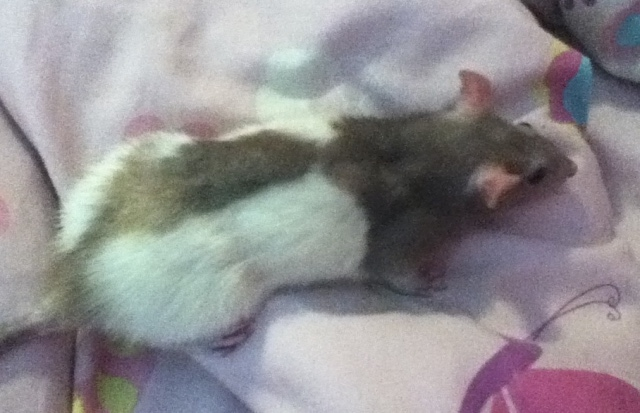 My female rat is very skinny and scruffy
Question
Overall appearence Close up of her fur
My female rat is very skinny and scruffy
Question
Overall appearence Close up of her fur
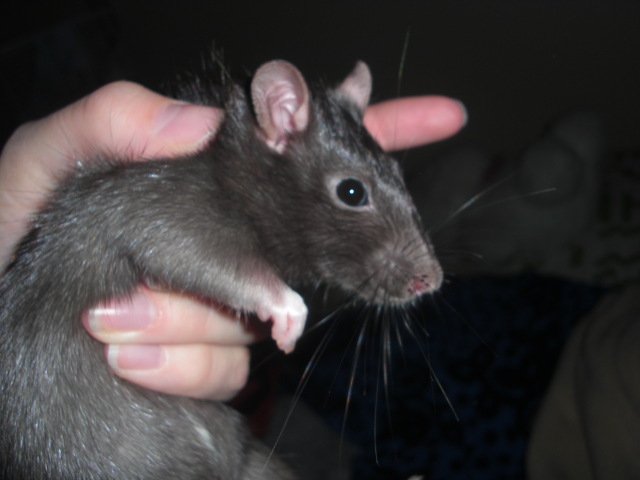 broken front leg? not sure, worried
QuestionQUESTION: 2 days ago I noticed that my female r
broken front leg? not sure, worried
QuestionQUESTION: 2 days ago I noticed that my female r
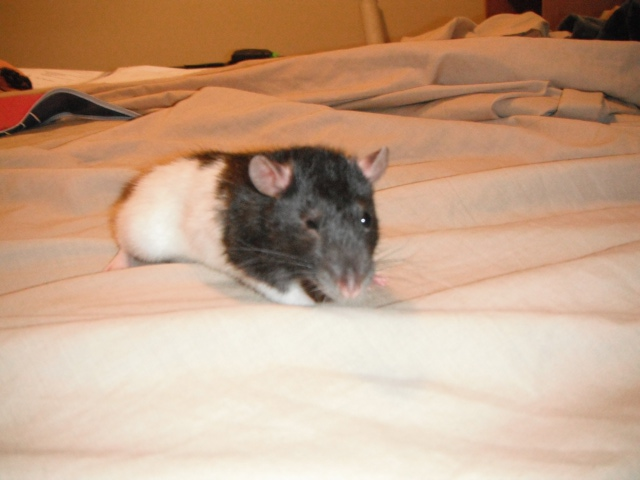 Rat with sore eye
Question
Female rat
Today I bought a female rat
Rat with sore eye
Question
Female rat
Today I bought a female rat
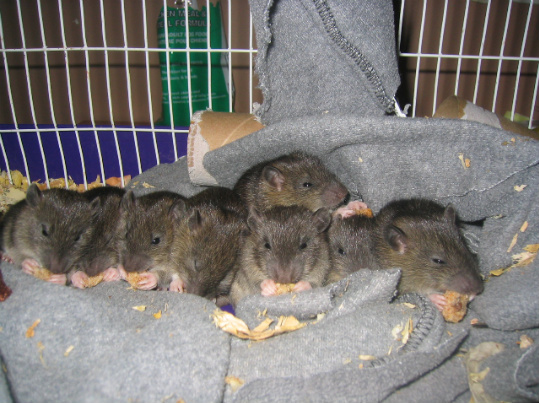 mouse
QuestionQUESTION: Hi Sandra,
I saw some of your questio
mouse
QuestionQUESTION: Hi Sandra,
I saw some of your questio
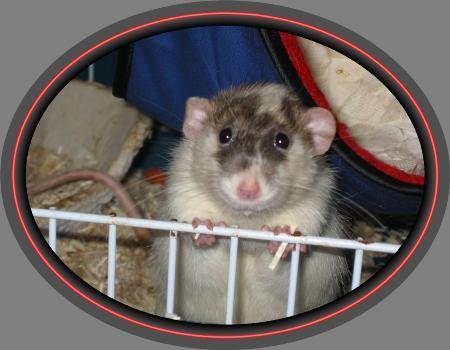 Oxygen...how much do I give her?
QuestionQUESTION: Hi there. My rat Blondie is 2 years a
Oxygen...how much do I give her?
QuestionQUESTION: Hi there. My rat Blondie is 2 years a